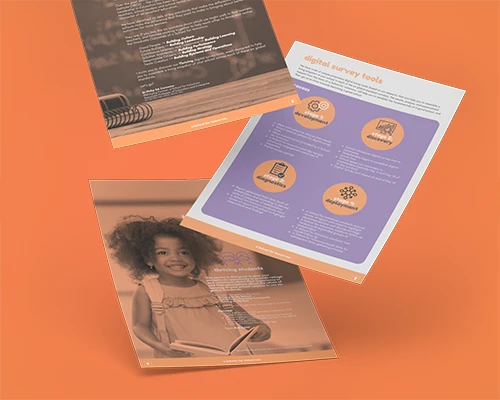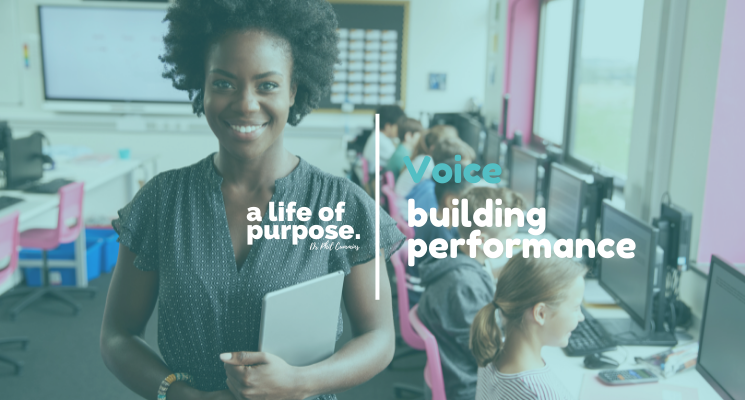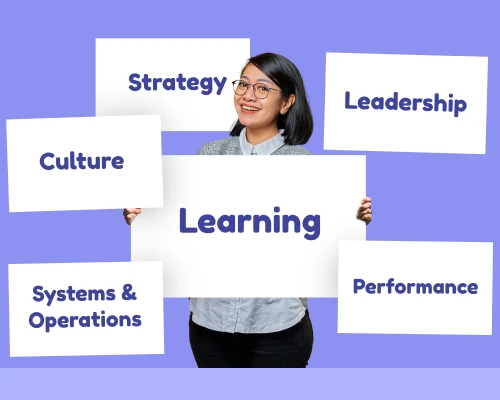
Dr Phil Cummins
Mar 12, 2023 | 3 minute read
Student Voice and School Culture
Dr Phil Cummins explores the nature of a school culture that values the voice of students.
Promotion
a School for tomorrow's
Voyage Global Student Platform
Learn more about how we are helping today’s global students prepare for tomorrow’s world.
Let's go!We need to be careful stewards of a school culture that supports the emerging voices of our students. We need to be understanding of the best ways to help students to be both confident in themselves and respectful of people and place and planet as they talk to what means most to them in their world.
The culture of a school that promotes the location and articulation of student voice needs to be centred on:
- Character, Resilience & Moral Code: we need to help our students to develop a personal moral code – a strong sense of what they believe is right and wrong in the world.
- Rigour, Respect & Reputation: conversely, students need to try to earn their place at school every day by living up to the expectations of the community.
Underpinning all of this is how our students strive to manage themselves and, in the process, embrace the quality of integrity: wholeness as people whose values are translated into intentions which flow through to both actions and impact. Yet we need to appreciate that none of us is flawless and so our integrity will always be challenged by our humanity. The outcomes and the voices that express them in school culture can never be perfect:
“You are and always will be a work in progress. You will never be a finished or a perfect product. As you go through life, you will experience success and failure, as well as work and reward. Every day, month, and year, you will have the opportunity to refine what you do and grow in what you know, what you can do, who you are becoming, and the supportive habits you are acquiring. Understanding who you are and what you need to do to be well is the foundation of this learning journey."
www.aschoolfortomorrow.com/the-pathway-to-excellence/learn/personal-development
As we have seen in schools involved in our CIRCLE Global Educational Research Program, we are yet to see consistency in this respect in how we go about the encouragement of voice in daily interactions. As one teacher comments:
“Students are very supportive of each other whatever we are doing however like any school there is a lot of teasing and banter that some might see as put downs.”
In addition, in the development of character apprenticeships that we see at the heart of expert teaching practice, while teachers do well in building technical capacity through relationships, there is significant room for development of the relationality required to cultivate each student’s voice:
|
Strong Pedagogical Practice |
Developing Pedagogical Practice |
|
Mastery Through Character Learning Supportive Personal Network Teaching Through Listening Positive Teaching Environment Student-Teacher Trust |
Teacher Relational Expertise Relational School Evaluation Foster Student Voice Unique Student Contribution Cross-Age Student Apprenticeship |
Expert teachers understand this. Their sense of purpose is shaped by a commitment to optimism. They support their students to become good people who are fundamentally interested in the integrity of their character and the development of self-management. Through their practice, they address the cultivation of:
- Character, Resilience & Moral Code: particularly in their formal and informal assessment and feedback, they notice and affirm the potential and growth of character, competency and wellness of each student in their care.
- Rigour, Respect & Reputation: expert teachers listen to their students and ask questions that guide them to explore and explain their maturing ethical decision-making and judgement.
We need to be role models who can ask our students to strive towards a commitment to becoming good people with the capacity to lead meaningful lives. We must want them to demonstrate quality and consistency in their self-management by meeting their obligations to others, reaching their potential, and acting in accordance with what they believe to be good and right.
Often referred to as ‘human’ or ‘soft’ skills, the global educational research program of a School for tomorrow has identified six core Employability Skills. Educating for Student Voice supports the development of the self-management required for our students to thrive in the world beyond school. This requires specific choices to be made about what matters most to communities whom the school serves:
Part of the culture that we're trying to build at our school, that is one that values kindness.
Nathan Chisholm | Game Changers insight*
|
Skill |
Attributes |
Capabilities |
|
Self-Management |
Personal Organisation |
I set goals and manage my time effectively to achieve them. |
|
Resilience |
I work effectively under pressure. |
|
|
Adaptability |
I respond positively to change. |
|
|
Self-Awareness |
I am aware of my strengths and limitations. |
|
|
Responding to Feedback |
I reflect and act on feedback from my mentors and professional network. |
|
|
Personal Responsibility |
I take the initiative to monitor and evaluate my own performance. |
As leaders in our schools, we need to help both school culture** and our students take the big step forward and up – and, through their own voice and their respect for the voices of others, to bring others with them. Adriano and I put it like this in our recent book***:
In our times, the character of leadership in schools is inextricably bound up with helping communities to chart a way forward in a rapidly changing world.
Ref: Game Changers: Leading Today's Learning for Tomorrow's World (Hawker Brownlow Education 2022) p.51
Let’s go!
Phil
* You can listen to Nathan Chisholm’s Game Changers Episode here: https://podcasts.apple.com/au/podcast/game-changers/id1503430745?i=1000487967798
** You can learn more about the culture of a growth-minded community of inquiry and practice in which student voices flourish here: https://www.aschoolfortomorrow.com/game-changers/live
*** You can purchase your copy of Game Changers: Leading Today’s Learning For Tomorrow’s World here: https://www.hbe.com.au/hb1338.html
Related Content

Products & Services
Discover our 'Thriving' Digital Survey ToolsLike what you’ve read?
Let’s keep the conversation going.

